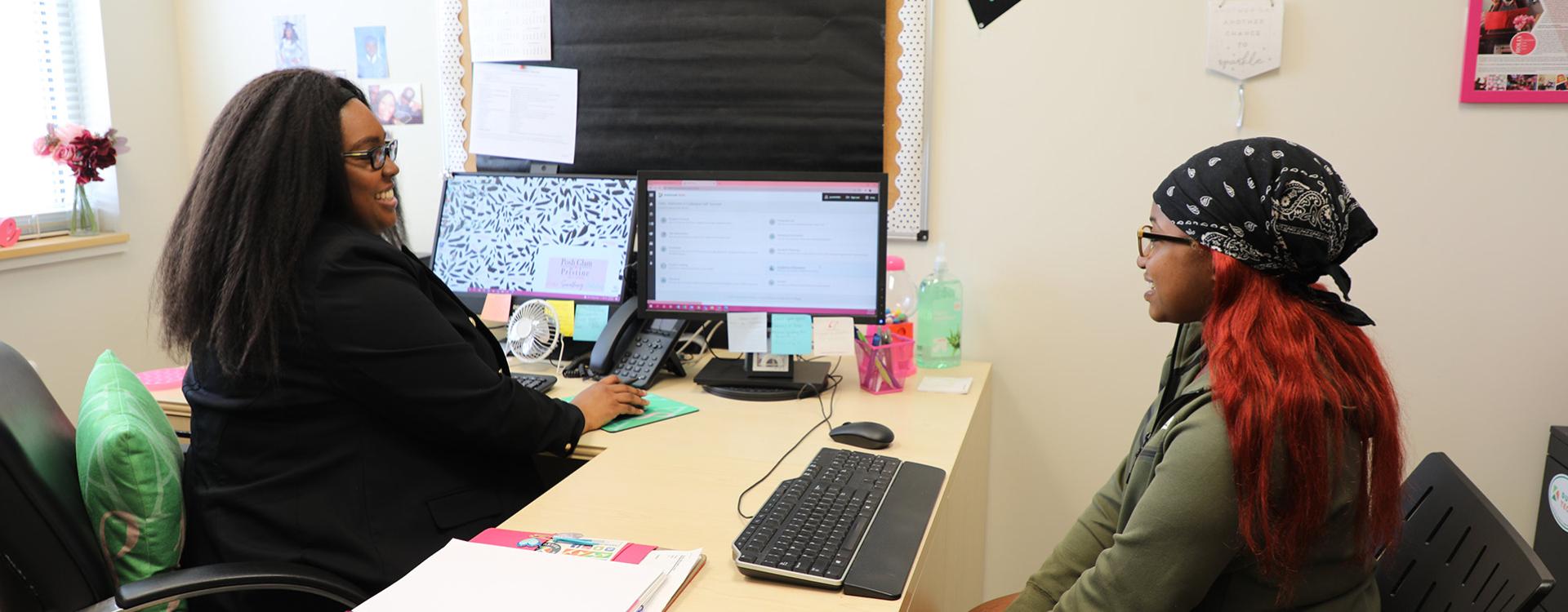The Americans with Disabilities Act (ADA) protects qualified individuals with disabilities. An individual with a disability is a person who has a physical or mental impairment that substantially limits major life activities. To ensure that Durham Tech is fully accessible to students with disabilities, students are provided a document called an Accommodation Plan. This plan identifies the student’s goals and outlines approved accommodations the student will use while in attendance at Durham Tech. Accommodations are based on information provided by the student and qualified examiners. The Accommodation Plan does not provide diagnostic or other detailed information about the student’s disability. It is unlawful for Accessibility Services staff members to disclose any information about a disability to others or for an instructor to require information about a disability from the student without written consent from the student.
- Receive the Accommodation Plan.
In order for a student to receive accommodations in class, the student must provide instructors with an Accommodation Plan that has been approved by the student and accessibility services staff member.
- Check the date on the Accommodation Plan.
The Accommodation Plan is valid for one semester only. Students need to obtain a new Accommodation Plan each semester they are enrolled at Durham Tech. Faculty should check the date on the Accommodation Plan to make sure it is appropriate for the current semester.
- Have a conversation with the student. Once the Accommodation Plan is received, it is important to have a conversation with the student to discuss implementation on the plan in your course. You must keep this information confidential, but can discuss any concerns with the student, Accessibility Services, or your supervisor (if needed).
- Determine the accommodations specific to your course.
If you have questions about the accommodations call Accessibility Services at 919-536-7208 or complete the Accommodation Inquiry Form.
- Document your decisions and provide accommodations.
Frequently Asked Questions
- Do accommodations give students an unfair advantage?
-
No. Reasonable accommodations are legally mandated and are intended to provide students with documented disabilities an opportunity to be evaluated based on ability, not disability.
- Am I required to lower the standards of a required assignment because the student has a disability?
-
No. Standards should be the same for all students. Accommodations provide equal access to the educational process, not guaranteed success.
- I suspect a student has a disability. How can I suggest the student talk to Accessibility Services?
-
Tell the student you have noticed they are struggling; then provide information about campus resources, support and services, listing Accessibility Services as one of several resources.
- Can I ask students about their disabilities?
-
You can ask students about their needs related to learning and fulfilling the requirements of your course, but you should avoid asking specific questions about their disability. Please respect student privacy and do not share information about accommodations or a student’s disability without permission.
- What if a student claims to have a physical or mental disability and request classroom and testing accommodations, but does not have an accommodations letter from Accessibility Resources?
-
Refer the student to Accessibility Services located in the Wynn (Building 10), room 10-209, where they will complete a request for accommodations, present documentation indicating the type of disability, severity, limitations, medications, and discuss possible accommodation needs.
- What if a student is receiving accommodations and is not doing well in class?
-
Treat the student as you would any other student. Enter into interactive processes with the student to try to identify the problem and appropriate alternative format, support service and/or referral.
- Can a student receive a failing grade in a college class in which they are receiving accommodations?
-
Yes. Accommodations ensure “access” not “success”.
- What if a student feels he or she has been discriminated against because of their disability?
-
Communicate effectively both orally and in writing. Try to resolve the complaint at the lowest level by meeting with the key people involved. You may contact the Vice President of Equity and Inclusion if further assistance is warranted.
- What if a student with a disability is disruptive in class?
-
A student with a disability who is disruptive in class should be treated as an instructor would treat any student who is disruptive in class. If an instructor feels that there is a disability-related reason for the student’s behavior, the instructor can discuss this with the student’s Accessibility Services to determine if there is a solution to the problem or strategies for addressing the behavior.
- Can I provide accommodations for a student without utilizing the Office for Accessibility Services?
-
In order to ensure that accommodations are appropriately and effectively administered to students with disabilities, instructors are strongly discouraged from providing accommodations outside of the procedures outlined by Accessibility Services. By using the Accessibility Services, the instructor can be confident that the student qualifies for appropriate accommodations.

